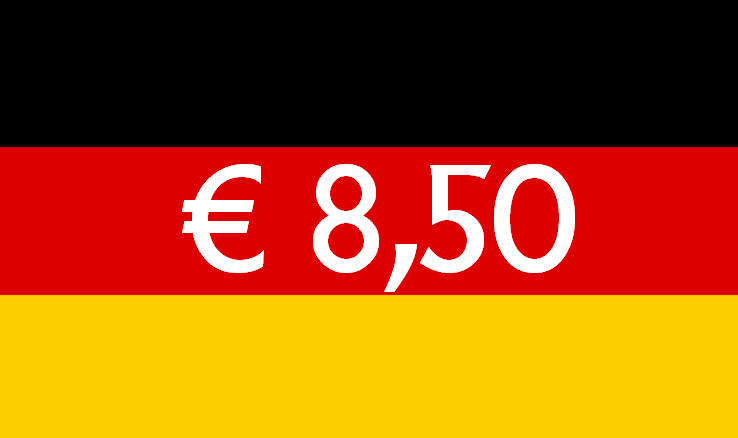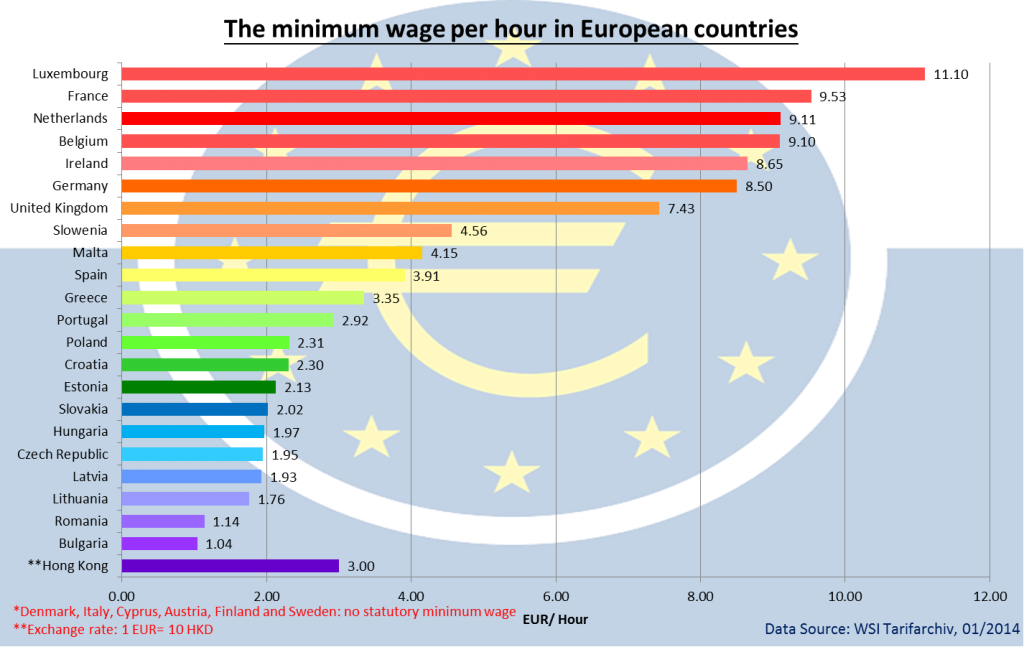Synopsis
The German Bundestag passed a bill concerning minimum wage on 3rd July 2014, which finally brought an end to the ten year debate in Bundestag.
The minimum wage in Germany will be set at €8.50 per hour (approximately $90HKD), which covers most industries. Most of it will be effective from January 2015, while the rest have a two year grace period to gradually implement the law. Interns and employees under 18 are not included in this law. Furthermore, in order to encourage employers in hiring the long termed unemployed, those who have been unemployed for over a year would not receive a minimum wage during the first 6 months of employment. The minimum wage would be readjusted in 2018, and reviewed annually thereafter.
This bill was passed with a huge majority in the Bundestag with 535 votes in favour, 5 votes against and 61 abstentions. Outside the Bundestag, the bill is also widely accepted by German citizens. According to a survey conducted by a German TV channel (Das Erste), 88% of interviewees supported the implementation of the minimum wage, with only 10% went against; while 68% don’t think that the implementation of a minimum wage would lead to a reduction of jobs, 26% of interviewees think otherwise.
However, many employers showed dissatisfaction. They think that the implementation of minimum wage was based on a political rather than an economic decision. In some industries, where the increase of production cost could not be immediately transferred to consumers, a cut in posts is expected so as to maintain themselves at the break even.
Read more
Supplementary: The situation of minimum wage in Europe
Among the 28 members of the European Union (EU), 21 of them have already passed laws on minimum wage (see the graphic below).
Further reading
Example: The United Kingdom
The UK implemented the minimum wage in 1999. It was originally set at no less than £3.6 per hour (approximately $47 HKD). It has however been severely criticized for its subsequent adjustments couldn’t catch up with inflation rates. Therefore starting from October 2014, the minimum wage would be increased to £6.5 (approximately $86 HKD). Critics say that this amount could roughly cover the cost of meals but couldn’t provide a decent living style for the beneficiary. On the other hand, employers think that with an increase in cost, it would only force them to hire fewer persons, or even move the entire production line to a country where the production cost is lower.
Further reading


